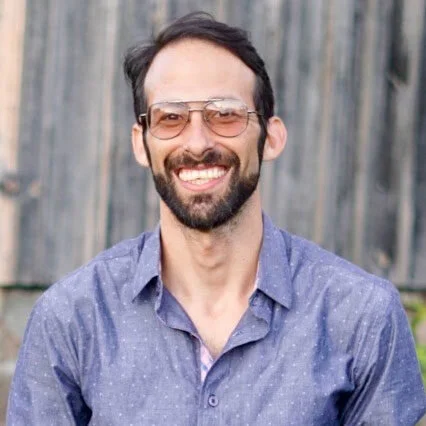Research Team
Dr. Rael Cahn, MD, PhD
Modern Spirit Epigenetics Project Principal Investigator.
Dr. Cahn is an Assistant Clinical Professor with the USC Department of Psychiatry & Behavioral Sciences and Assistant Research Professor at the USC Brain and Creativity Institute. He has been studying the neuroscience of meditation and states of consciousness throughout his career in science and medicine and has authored numerous basic neuroscience investigations of meditation and psychedelic-induced states and traits of consciousness as well as comprehensive integrative reviews of both the neurophysiology of meditation and the impact of meditative practices in Major Depressive Disorder. Dr. Cahn has investigated the brain states associated with a wide range meditative practices and is currently using both fMRI and EEG methods to investigate the neurophysiologic mechanisms underlying mindfulness practice in diverse populations as well as advanced states of narrative-free awareness in long term meditators. Dr. Cahn has a particular interest in methods to promote the resolution of emotional disturbance through developing acceptance, equanimity, compassion, and expanded awareness of the levels of self-experience and the clinical and societal applications of such approaches.
In addition to the systematic training of awareness through meditative practice Dr. Cahn has an interest in the adjunctive use of psychedelic medicines to promote deeper insight into automated emotional patterning and dysfunctional self-narratives leading to his engagement as Principal Investigator on the study of the Epigenetic regulation underlying the efficacy of MDMA-Assisted Psychotherapy for PTSD in collaboration with the MAPS-funded Phase III Trial.
Dr. Candace R. Lewis, PhD
Dr. Lewis aims to revolutionize mental health care by exploring dynamic environmental and genetic influences on brain-behavior relationships. A native of Alaska, she earned a Bachelor’s degree in Psychology from the University of Alaska Anchorage.
Next, she earned a PhD in Behavioral Neuroscience at Arizona State University on a Harry S. Truman Scholarship while investigating the effects of early life stress on addiction behavior and neuroepigenetics.
Dr. Lewis received a Fulbright Fellowship to learn advanced neuroimaging and psychedelic research methods at the University Hospital of Zurich. She was also awarded the Science Foundation Arizona Bisgrove Fellowship to investigate the interplay between early experiences, epigenetics, physiology and behavior.
Taken together, her research centers around the age-old question of nature versus nurture with a modern twist. Dr. Lewis seeks to unravel how genetics and experiences continuously interact to shape neurobiology and behavior.
Dr. Ben Kelmendi, MD
Dr. Benjamin Kelmendi is an Associate Research Scientist at Yale University School of Medicine, Department of Psychiatry.
Dr. Kelmendi’s interests lie in the area of clinical research aiming to understand the mechanism of symptoms that characterize Obsessive-Compulsive Disorder and Posttraumatic Stress Disorder with the ultimate goal of developing new understandings and better treatments.
In parallel, he is interested in elucidating the neurobiological mechanisms of pharmacological interventions that produce acute clinical effects such as MDMA, Psilocybin, and Ketamine using various methodological tools: fMRI, MRS, EEG, genetics, and neurocognitive testing.
Dr. David Rabin, MD, PhD
David Rabin MD, PhD is the Chief Innovation Officer, Co-Inventor & Co-Founder of Apollo Neuroscience.
As a psychiatrist and translational neuroscientist, Dr. Rabin specializes in developing novel, non-invasive therapies for treatment-resistant physical and mental illnesses. His research focuses on chronic stress from the cellular and molecular level to the body as a whole.
Dr. Rabin works to identify new healthcare markets, to evaluate Apollo’s real-world efficacy through clinical trials, and to guide development of the Apollo technology.David Rabin MD, PhD is the Chief Innovation Officer, Co-Inventor & Co-Founder of Apollo Neuroscience.
As a psychiatrist and translational neuroscientist, Dr. Rabin specializes in developing novel, non-invasive therapies for treatment-resistant physical and mental illnesses. His research focuses on chronic stress from the cellular and molecular level to the body as a whole.
Dr. Rabin works to identify new healthcare markets, to evaluate Apollo’s real-world efficacy through clinical trials, and to guide development of the Apollo technology.



